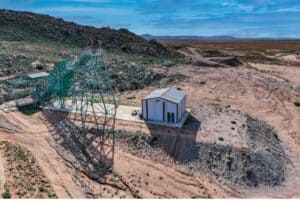Shell were given approval for the 3 200m-deep well by the mineral resources department but environmentalists are questioning the decision.

Environmentalists are appealing the government’s decision to grant Shell permission to drill deep into the Northern Cape coast.
The Department of Mineral Resources granted Shell environmental authorisation for the site in early July, allowing for drilling up to depths of 3 200m.
Citing concerns from fishing communities and heritage organisations over the possible infringement of cultural rights, appellants highlighted what they believe are holes in Shell’s initial submission.
Third-deepest well in the world
Shell’s Northern Cape Ultra Deep (NCUD) oil and gas project could tap into deep-sea reserves located off the South African coast between Lamberts Bay and Namibia.
If Shell is successful, the well would become the third deepest offshore site in the world.
Organisations opposed to the project believe the oil giant’s environmental impact assessment report did not cover the required criteria.
Natural Justice and The Green Connection’s appeal states that the modelling used to determine Shell’s ability to close the well in the event of a disaster was inadequate.
Additionally, full emergency plans were not disclosed, raising the suspicion of the environmentalists.
“How could decision-makers have considered all the risks or fully assess the adequacy of the various contingency plans, without having detailed, site-specific emergency response plans,” stated Neville van Rooy, Community Outreach Coordinator at The Green Connection.
The Citizen reached out to Shell for comment. Any response will be included once received.
Inadequate emergency plans
The plan listed by Shell in the impact report involved the installation of a capping stack within three weeks of a disaster.
The appellants questioned whether such an installation was possible at the required depth, within the stipulated timeframe, as Shell’s models were based on existing sites, not the conditions specific to the NCUD.
The Green Connection’s legal advisor, Shahil Singh, said the perceived lack of transparency violated legal protections and sections of the constitution.
“These omissions are not minor. It may violate the principles of South African environmental law, which demand transparency, precaution, and public participation,” said Singh.
Noting Shell’s failed attempt to drill off the Eastern Cape coast several years ago, which was halted by court action, Singh said this scenario created a “pattern” of attempting to dodge oversight.
“It is exploitation — because it doesn’t uplift communities nor protect the environment — but destroys instead.
“We cannot stand by while our ocean and our future are sacrificed for short-term corporate profit,” Singh concluded.
NOW READ: Money was what pushed Shell out of South Africa – expert






